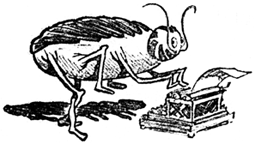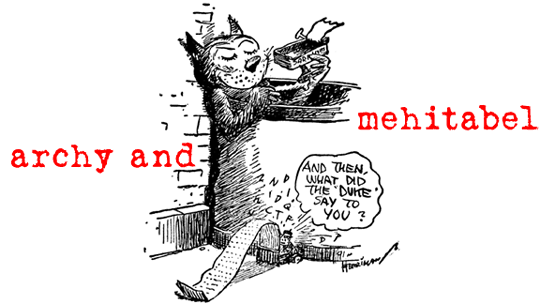 Jeanne Matthews was born and raised in Georgia, where owning a gun is required by law in certain places and “he needed killing” is a valid legal defense to homicide. Jeanne’s debut novel, Bones of Contention, published in June, 2010 by Poisoned Pen Press, features a conniving Georgia clan plopped down in the wilds of Northern Australia where death adders, assassin spiders, man-eating crocs, Aboriginal myths, and murder abound. Jeanne currently resides in Renton, Washington with her husband, Sidney DeLong, who is a law professor, and their West Highland terrier. Bet Your Bones and Bonereapers are available at bookstores everywhere and the fourth in the series, Her Boyfriend’s Bones, will be out in June 2013.
Jeanne Matthews was born and raised in Georgia, where owning a gun is required by law in certain places and “he needed killing” is a valid legal defense to homicide. Jeanne’s debut novel, Bones of Contention, published in June, 2010 by Poisoned Pen Press, features a conniving Georgia clan plopped down in the wilds of Northern Australia where death adders, assassin spiders, man-eating crocs, Aboriginal myths, and murder abound. Jeanne currently resides in Renton, Washington with her husband, Sidney DeLong, who is a law professor, and their West Highland terrier. Bet Your Bones and Bonereapers are available at bookstores everywhere and the fourth in the series, Her Boyfriend’s Bones, will be out in June 2013.
I just finished my fourth book in the Dinah Pelerin mystery series and, mentally exhausted from my labors, I’ve been thinking a lot about Archy. For those of you who don’t know Archy, he is a fictional cockroach and a writer of considerable insight and wisdom. His observations on art and life can be found in a book called The Lives and Times of Archy and Mehitabel.
In a former life, Archy was a human being and a vers libre (free verse) poet. However, a snafu in the transmigration of his soul caused him to be reincarnated into the body of a cockroach. Inconvenient as this condition is, expression remains the cry of his soul and at night, when the newspaper office where he lives shuts down, he jumps onto an old manual typewriter, hurls his little body against the keys at terrible cost, and pours out his heart on matters great and small. Archy can’t press two keys at once to operate the shift, so he uses no capitalization and punctuation is similarly beyond his ability. But in his sufferings to produce words and his single-minded determination, Archy is the inspiration of every struggling writer, just as he was the alter ego of his creator, Don Marquis.
E.B. White said of Archy, “The details of his creative life make him blood brother to writing men. He cast himself with all his force upon a key, head downward. So do we all. And when he was through his labors, he fell to the floor, spent. He was vain (so are we all), hungry, saw things from the  under side, and was continually bringing up the matter of whether he should be paid for his work.” And when his labors were finished and his force spent, the question that haunted Archy is the question that haunts all writers, “Is the stuff literature?”
under side, and was continually bringing up the matter of whether he should be paid for his work.” And when his labors were finished and his force spent, the question that haunted Archy is the question that haunts all writers, “Is the stuff literature?”
By day, Marquis ground out a column for the New York Sun and by night, he wrote poetry that never gained the respect of the serious poets or literati. This dearth of praise and acceptance depressed Marquis. He was by nature a gloomy man for whom writing came hard in a time when expectations ran high and every single day he faced a deadline. Newspaper columnists in the 1920s were expected to be scholars and Renaissance men. Marquis churned out his daily columns on schedule, but with increasing desperation. Like me trying to dream up a subject to blog about that hasn’t already been blogged to death, Marquis racked his brain and tore out his hair. When he hit finally upon the idea of Archy as his narrator, it allowed him to riff on any subject from beer to Bonaparte without sounding pompous or pedantic.
Spiritualism wafted through the air of that era like pollen. Everyone (including Sir Arthur Conan Doyle) wanted to contact somebody “on the other side.” And free verse was all the rage. Archy and his dissolute feline pal, Mehitabel, captured the Zeitgeist perfectly. Mehitabel had fallen on hard times in karmic terms. She had inhabited the person of Cleopatra in a previous existence, but now in her ninth life, she has been cruelly reborn  into the scuzzy anatomy of an alley cat. Despite this comedown, Mehitabel is irrepressible. She is a free spirit, declaring that it’s “one life up and the next down, but always a lady through it all and a good mixer, too.” And Archy, who wants to write sonnets and songs and Spenserian stanzas, broods that he might have done it but for the “grind grind grind.” His innate resistance to that grind moved him to organize the Worms Turnverein.
into the scuzzy anatomy of an alley cat. Despite this comedown, Mehitabel is irrepressible. She is a free spirit, declaring that it’s “one life up and the next down, but always a lady through it all and a good mixer, too.” And Archy, who wants to write sonnets and songs and Spenserian stanzas, broods that he might have done it but for the “grind grind grind.” His innate resistance to that grind moved him to organize the Worms Turnverein.
Some years ago, my husband and I were touring through rural, southwestern France and every few miles we saw signs that read “Vers à Vendre.” Verse for Sale? Sure, this was France, land of Rimbaud and Verlaine and chansons d’amour. Even so, we couldn’t believe that so many farmers in this remote corner of the country could be poets and that they supplemented their income by selling their verse to passersby. Did one just stop off, ask to look at a fellow’s chapbook, and make him an offer? What if you didn’t care for his rhyme or his meter or the too-reckless freedom of his verse? Would that be awkward?
After many miles and much speculation, we realized that the word vers also means worms. We were in fishin’ country. The signs advertised bait. Still I couldn’t help but wonder. How many unfulfilled poets are there out there? How many for whom expression is the cry of their souls? Judging from the flood of books and articles and poems and blogs, we must number in the millions. We’ve got a gazillion words to sell and the grind grind grind of the publishing biz drives us to produce more and more, faster and faster.
Vers à vendre. But who among us does not worry and fret? Is the stuff literature?
ah archy
thou and i

What a wonderful post, Lelia, on several scores, the first has to be the clever creation of Archy who freed his creator so he could speak freely. I’ve got to find my own Archy, I’m thinking as I read.That’s a great hurdle. I also got a kick out of the free verse. Having traveled the French countryside, I related. It is also a good lesson on point-of-view. At first, I wondered why the you didn’t just stop and investigate the free verse market. Of course, then you would have been presented with a bag of worms.
LikeLike
Thanks, enjoyed the post
LikeLike
Such a fun post! And interesting, too! You’ve made a poetic connection, from a cockroach to worm sales. Extraordinary!
LikeLike
Jeanne, you are brilliant. It’s rare writer who can enlighten, educate, and amuse all at once. I eagerly await your 4th novel.
LikeLike
Jeanne, you’ve left me with a smile — and (as usual) better informed. Now, when I go traveling in the South of France, I will not be tempted to purchase poetry. Thank you for the heads-up. 😉
LikeLike
Delightful in every way. Completely enjoyed this piece. Even improved my view of the cockroach!
LikeLike
Archy . . .haven’t thought about him in awhile. Thanks for the memories so well put and so relevant to what we do! Jane Isenberg
LikeLike
Seconding Bernadette’s sentiments. What fun to be reminded of A & M (and the horror of daily deadlines!). What a way to turn a phrase, e.g., “fallen on hard times in karmic terms.” Delightful. For those of us who are merely readers, I have to say please don’t stop!
LikeLike
Thanks to everyone for your comments. Archy is a kindred spirit to all of us who bang our heads against the keyboard, pouring our hearts out in the hope that our words will matter to somebody somewhere. And Mehitabel reminds us to keep our chins up, even when we’re down to the last of our nine lives. Toujours gai!
LikeLike
So glad I am back on your blog here in rainy Munich. Loved your archy and mehitabel and hope Cynthia will buy your new book and I can read it when I get there – unless it is sold by Amazon. Hilde
LikeLike
Hilde! Lovely to hear from you. My latest book is set in sunny Greece, but my poor protagonist — who hates cold weather and leaden skies — may end up in Berlin in the sequel. You will have to tell me what she should expect and toss me some inspiration. Jeanne
LikeLike
Marvelous post, Jeanne… am in the jungle in Maui now and appreciating all my insect companions.. thanks for introducing me to Archie 🙂
LikeLike
Neat blog, Jeanne. Wasn’t aware of Archy and Mehitabel. Enjoyed the enlightenment as well as the heads up where good fishing can be found in France. Thanks!
Karen
LikeLike
I am planning a trip to Berlin as soon as it stops raining, so I will let you know then. I was last there 10 years ago and hear it has really changeed.
LikeLike